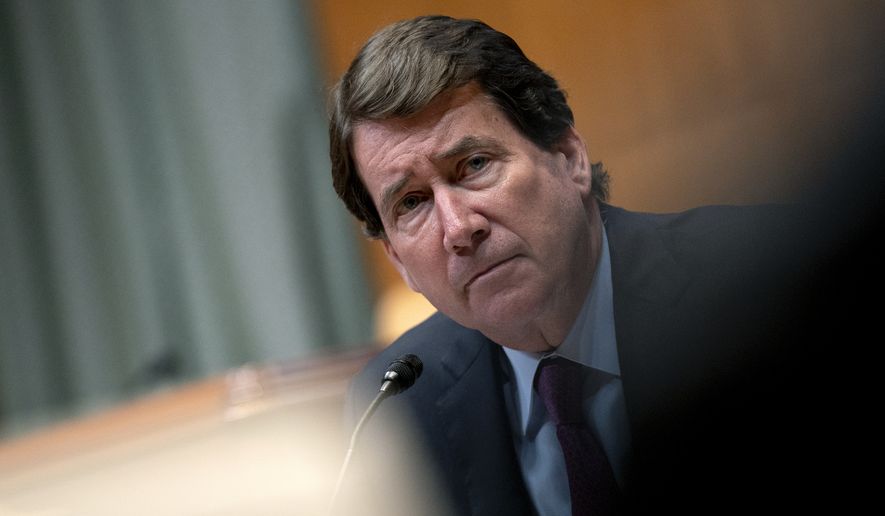Senate Republicans are urging the White House to curtail regulations preventing international loans from going to U.S. companies working on fossil fuel projects overseas.
Sen. Bill Hagerty, Tennessee Republican, said federal agencies like the U.S. International Development Finance Corporation (DFC) are continuing to prioritize “woke” climate change policies, even as global energy markets have been disrupted by Russia’s invasion of Ukraine.
“In light of the current crisis, I urge DFC to make a concerted effort to help fund investments that would allow the U.S. fossil fuel industry to deliver cheap, reliable, and environmentally responsible energy for the world,” Mr. Hagerty wrote in a letter to the DCF, which was obtained exclusively by The Washington Times.
Congress established the DFC in 2018 to foster private sector investment by U.S. companies in developing nations around the globe. The agency provides loans, direct investment and insurance for private sector development projects in lower-and-middle-income countries.
Lawmakers note, however, that the agency does not invest in projects “unless they are compatible with low carbon economic development.”
Republicans say the policy is punishing American companies, while preventing U.S. allies from developing energy industries that can compete with Russia’s state-owned petroleum conglomerate.
“This counterproductive fixation on ‘green’ energy has led DFC to shun investments in fossil fuel projects, even if they have a lower net environmental impact than the non-American alternative,” said Mr. Hagerty. “This short-sighted policy, similar to those of our European allies, has led to a crippling energy dependence on Russia … and prevented our allies from being able to respond forcefully to the invasion of Ukraine.”
The White House did not respond to requests for comment.
Since war broke out in Eastern Europe, President Biden has sought to punish Russian oil companies without exacerbating rising energy costs in the U.S. The strategy has seen administration officials reopen negotiations with energy-rich countries that have long been shunned by the U.S., including Venezuela and Iran.
Not everyone is on board with the strategy, though, including some high-profile Democrats.
“We need to blow a hole in the Russian economy. We need to lower gas prices for American consumers. Everything should be on the table,” said Rep. Sean Patrick Maloney of New York, chairman of the Democratic Congressional Campaign Committee. “But I don’t support strengthening one dictator to hurt another. And I don’t think you’ll see us do that.”
Republicans, like Mr. Hagerty, say the U.S. should boost energy production both at home and abroad, starting with revamping the DFC’s criteria for investment.
“American energy companies have world-leading expertise in all sectors, including in the most widely used sources, such as fossil fuels and nuclear power,” he said. “Fossil fuel energy produced by American companies often has a lower greenhouse gas profile than the existing or alternative sources.”
• Haris Alic can be reached at halic@washingtontimes.com.
• Joseph Clark can be reached at jclark@washingtontimes.com.




Please read our comment policy before commenting.